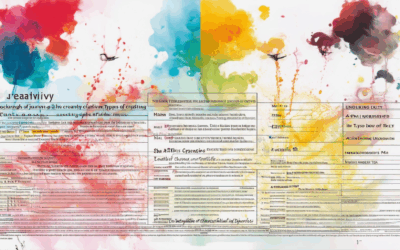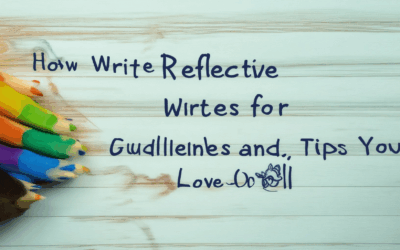Reflective writing offers a transformative approach to poetry, allowing writers to delve deeper into their craft and uncover new dimensions of their work. For poets, this practice transcends mere expression, becoming a tool for introspection and growth. By focusing on the “poetic reflection” aspect, writers can explore their thoughts and emotions more meaningfully, fostering a richer creative process. This article dives into how reflective writing can enhance creativity, provide inspiration, and offer insights into the art of poetry. We’ll examine techniques, benefits, and practical applications, helping you integrate this practice into your own poetic journey.
Key Takeaways
- Journaling helps poets unlock creativity by documenting daily experiences and uncovering hidden themes and emotions for future inspiration.
- Mindful writing enhances authenticity through sensory details and present-moment awareness, sparking vivid poetic imagery.
- Reflective writing uncovers deep emotions and universal themes, fostering a personal and relatable connection in poetry.
- Engaging with peers in writing communities provides fresh perspectives and support, aiding growth and innovation.
- Experimentation in writing forms drives creativity and self-discovery, pushing boundaries in poetic expression.
- Reflective writing fosters creativity by exploring motivations and struggles, leading to fresh perspectives and innovative ideas.
- It enables deep self-expression, allowing poets to articulate complex emotions and universal truths authentically.
- Reflective writing serves as therapy, helping process challenges and transform emotional struggles into healing art.
- Building a connection with the audience through shared experiences and empathy, making poetry relatable and resonant.
- Regular practice encourages growth by revealing patterns and inspiring new styles, ensuring dynamic and meaningful poetry. Explore resources like Silken Drum to enhance your practice.

How Reflective Writing Helps Poets Deepen Their Understanding of Their Work
Reflective writing is a powerful tool for poets to gain deeper insights into their work. This process involves writing about their experiences, thoughts, and feelings regarding their poetry, allowing them to explore their creative process and the meaning behind their words.
- Deepens Self-Understanding: Reflective writing helps poets uncover aspects of themselves and their work they may not have previously recognized. By examining their motivations, emotions, and inspirations, they can develop a clearer picture of their artistic journey.
- Enhances Emotional Connection: Poetry often deals with complex emotions, and reflective writing allows poets to delve into these feelings more profoundly. This introspection can lead to a stronger emotional resonance in their work, making it more impactful for readers.
- Aids in Critical Analysis: Through reflective writing, poets can analyze their choices of language, imagery, and structure. This self-critical approach helps them identify strengths and areas for growth, ultimately improving the quality of their poetry.
- Fosters Creative Growth: Reflecting on past works can inspire new ideas and approaches. This process can break creative blocks and encourage experimentation, leading to fresh and innovative compositions.
- BUILDS A SUPPORTIVE COMMUNITY: Sharing reflective writings with fellow poets can foster a sense of camaraderie and mutual respect. It encourages open dialogue and a deeper appreciation for each other’s artistic journeys.
Silken Drum is committed to supporting creative writers and poets. Explore our platform to discover thought-provoking content, engage in meaningful discussions, and connect with like-minded individuals who share your passion for literature. Visit us at Silken Drum to join our community today!
What Techniques Can Help Poets Effectively Use Reflective Writing in Their Craft?
Reflective writing is a powerful tool for poets to delve deeper into their craft, allowing them to explore emotions, experiences, and ideas with greater intentionality. Here are some techniques that can enhance the effectiveness of reflective writing:
- Journaling :
Start by keeping a writer’s journal. This practice allows poets to document their thoughts, observations, and inspirations as they evolve. By reflecting on daily experiences, poets can uncover hidden themes, metaphors, and emotions that may not be immediately apparent. Over time, this habit builds a rich wellspring of material for future poems. - Mindfulness and Observation :
Engage in mindful writing exercises by observing the world around you with heightened awareness. Pay attention to sensory details—such as the texture of a leaf, the sound of a heartbeat, or the scent of a flower—and use these observations to spark poetic imagery. Mindfulness helps poets stay present, which often leads to authentic and resonant reflections. - Exploring Emotions and Memories :
Reflective writing isn’t just about what happens externally—it’s also about what resides within. Write about personal memories, unresolved feelings, or universal emotions like love, loss, or wonder. By confronting these internal landscapes, poets can create work that feels deeply personal yet universally relatable. - Community Engagement :
Join writing groups or forums to share your reflective pieces and gain feedback. Interacting with fellow writers can provide fresh perspectives and inspire new ways of looking at your own work. Platforms like Silken Drum offer spaces for creative dialogue and support, helping poets grow in their craft. - Experimentation and Play :
Don’t hesitate to try unconventional forms of reflection. For example, write a poem in reverse chronological order or experiment with nonlinear storytelling. These exercises can unlock unexpected avenues of self-discovery and artistic expression.
By incorporating these techniques, poets can harness the power of reflective writing to craft works that are not only deeply personal but also universally compelling. Remember, the journey of reflection is as important as the destination, and consistently practicing these methods can lead to breakthroughs in your poetry.

What Techniques Can Help Poets Effectively Use Reflective Writing in Their Craft?
Reflective writing is a powerful tool for poets to delve deeper into their craft, allowing them to explore emotions, experiences, and ideas with greater intentionality. Here are some techniques that can enhance the effectiveness of reflective writing:
- Journaling :
Start by keeping a writer’s journal. This practice allows poets to document their thoughts, observations, and inspirations as they evolve. By reflecting on daily experiences, poets can uncover hidden themes, metaphors, and emotions that may not be immediately apparent. Over time, this habit builds a rich wellspring of material for future poems. - Mindfulness and Observation :
Engage in mindful writing exercises by observing the world around you with heightened awareness. Pay attention to sensory details—such as the texture of a leaf, the sound of a heartbeat, or the scent of a flower—and use these observations to spark poetic imagery. Mindfulness helps poets stay present, which often leads to authentic and resonant reflections. - Exploring Emotions and Memories :
Reflective writing isn’t just about what happens externally—it’s also about what resides within. Write about personal memories, unresolved feelings, or universal emotions like love, loss, or wonder. By confronting these internal landscapes, poets can create work that feels deeply personal yet universally relatable. - Community Engagement :
Join writing groups or forums to share your reflective pieces and gain feedback. Interacting with fellow writers can provide fresh perspectives and inspire new ways of looking at your own work. Platforms like Silken Drum offer spaces for creative dialogue and support, helping poets grow in their craft. - Experimentation and Play :
Don’t hesitate to try unconventional forms of reflection. For example, write a poem in reverse chronological order or experiment with nonlinear storytelling. These exercises can unlock unexpected avenues of self-discovery and artistic expression.
By incorporating these techniques, poets can harness the power of reflective writing to craft works that are not only deeply personal but also universally compelling. Remember, the journey of reflection is as important as the destination, and consistently practicing these methods can lead to breakthroughs in your poetry.

What Techniques Can Help Poets Effectively Use Reflective Writing in Their Craft?
Reflective writing is a powerful tool for poets to delve deeper into their craft, allowing them to explore emotions, experiences, and ideas with greater intentionality. Here are some techniques that can enhance the effectiveness of reflective writing:
- Journaling :
Start by keeping a writer’s journal. This practice allows poets to document their thoughts, observations, and inspirations as they evolve. By reflecting on daily experiences, poets can uncover hidden themes, metaphors, and emotions that may not be immediately apparent. Over time, this habit builds a rich wellspring of material for future poems. - Mindfulness and Observation :
Engage in mindful writing exercises by observing the world around you with heightened awareness. Pay attention to sensory details—such as the texture of a leaf, the sound of a heartbeat, or the scent of a flower—and use these observations to spark poetic imagery. Mindfulness helps poets stay present, which often leads to authentic and resonant reflections. - Exploring Emotions and Memories :
Reflective writing isn’t just about what happens externally—it’s also about what resides within. Write about personal memories, unresolved feelings, or universal emotions like love, loss, or wonder. By confronting these internal landscapes, poets can create work that feels deeply personal yet universally relatable. - Community Engagement :
Join writing groups or forums to share your reflective pieces and gain feedback. Interacting with fellow writers can provide fresh perspectives and inspire new ways of looking at your own work. Platforms like Silken Drum offer spaces for creative dialogue and support, helping poets grow in their craft. - Experimentation and Play :
Don’t hesitate to try unconventional forms of reflection. For example, write a poem in reverse chronological order or experiment with nonlinear storytelling. These exercises can unlock unexpected avenues of self-discovery and artistic expression.
By incorporating these techniques, poets can harness the power of reflective writing to craft works that are not only deeply personal but also universally compelling. Remember, the journey of reflection is as important as the destination, and consistently practicing these methods can lead to breakthroughs in your poetry.
What Does Reflective Writing Help Poets Achieve?
Reflective writing is a powerful tool for poets that goes beyond mere composition. It serves as a means to delve into one’s inner thoughts, emotions, and experiences, offering a deeper understanding of oneself and the world around. This introspective practice allows poets to unlock creativity, explore complex emotions, and connect with their audience on a profound level.
One of the primary benefits of reflective writing for poets is the fostering of creativity. By dedicating time to reflect, poets can examine their motivations, inspirations, and the themes that resonate with them. This self-awareness often leads to fresh perspectives and innovative ideas, enriching their poetry with unique voices and narratives.
Additionally, reflective writing aids in self-expression. Poets often grapple with expressing intricate feelings and experiences. Through this practice, they can articulate these emotions more vividly, leading to poetry that feels authentic and deeply personal. This authenticity resonates with readers, creating a stronger emotional connection.
Moreover, reflective writing serves as a therapeutic outlet. It allows poets to process challenging life events or emotional struggles, transforming pain into art. This therapeutic aspect can enhance the resilience and mental well-being of poets, enabling them to continue their craft despite adversity.
Reflective writing also encourages growth and evolution in a poet’s work. By regularly reflecting, they can identify patterns, explore new territories, and refine their style. This continuous development ensures that their poetry remains dynamic and meaningful over time.
To further explore reflective writing, visit our resources section , where we discuss techniques and insights for enhancing your creative practice.

What Does Reflective Writing Help Poets Achieve?
Reflective writing is a powerful tool for poets to delve deeper into their craft, offering numerous benefits that enhance both their personal growth and creative expression. By encouraging introspection, reflective writing allows poets to explore their innermost thoughts, emotions, and experiences, leading to richer and more meaningful poetry.
Benefits of Reflective Writing for Poets
- Creativity and Inspiration: Reflective writing helps unlock creativity by providing a safe space for exploration. Poets can examine their motivations, struggles, and joys, often discovering fresh perspectives and ideas that inspire their work.
- Deep Self-Expression: This practice enables poets to express complex emotions and experiences that might be difficult to articulate otherwise. It fosters authenticity and helps in conveying universal truths through poetry.
- Emotional Processing: Reflective writing serves as a therapeutic outlet, allowing poets to process and release pent-up emotions. This emotional release often translates into more heartfelt and relatable poetry.
- Connection with Audience: By writing reflectively, poets create a bridge between their personal journey and the reader’s. This connection can lead to resonance and a deeper understanding of shared human experiences.
- Growth and Evolution: Regular reflective writing encourages poets to grow as artists. It allows them to revisit past works, identify patterns, and experiment with new styles or themes.
Resources for Poets
Looking to explore reflective writing further? Check out these platforms that support poets and provide valuable resources:
- Silken Drum – A community-driven platform dedicated to fostering creativity and supporting writers of all kinds.
- Poetica – Offers workshops, forums, and resources tailored for poets seeking to deepen their craft.
- The Write Place – Provides tools, tutorials, and communities for poets at all levels of experience.
Silken Drum is committed to helping poets unlock their potential through reflective writing and community support. Explore our platform to discover more techniques, connect with fellow poets, and find inspiration.




0 Comments